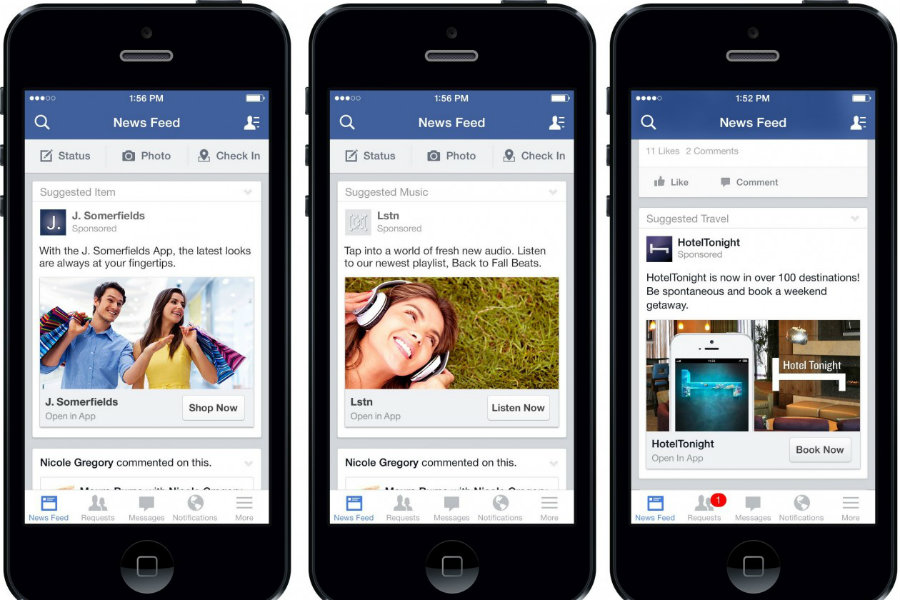Facebook announced Thursday that is going to fact check, label, and ban fake news from its News Feed feature. The measure comes after heavy criticism that accuses Facebook of misinforming people throughout the past U.S. presidential elections, although the social media does not produce the fake news.
Facebook does not write hoaxes, but it certainly plays a major role in spreading them. Recent surveys have discovered that around 44 percent of U.S. adults get news from Facebook. The social media currently has 1.8 billion users and misinformation is inevitable when there are no policies on sharing fake information.


The new measures to avoid fake information circulation in Zuckerberg’s social media include a new option to report false news and an international fact-checking network led by Poynter, a nonprofit school of journalism in St. Petersburg, Florida.
Third-party fact-checkers will be corroborated stories to determine if they are fake or misleading. If a story is false, it will be labeled as such or taken down from the News Feed. Facebook will test the new system to take down fake news in the United States, promising to expand the feature internationally as soon as they can.
Adam Mosseri, Facebook News Feed vice president, said in the company’ blog post that the new fact-checking system does not intend to make Facebook an arbiter of the truth but to focus on the worst of the worst of fake news and hoaxes spread by spammers. Mosseri acknowledged that the problem is being addressed carefully to avoid violations of free speech rights.
The measures: Reporting fake news, tagging them as disputed, and disrupting financial incentives
A Facebook team of researchers will identify news that could be false or misleading and will send them to Poynter’s partners to fact-check the information. There are 42 news organizations under Poynter’s fact-checking code of ethics. Facebook will be working first with Snopes, Factcheck.org, ABC News, PolitiFact and the Associated Press to fact-check News Feed articles.
Apart from corroborating that a piece of news is false, Poynter’s collaborators will also check sites that appear to be fake or spoofed, like washingtonpost.co or TechCrunch.co. Facebook will not pay the mentioned news networks for fact-checking.
The primary fact-checking partners will have access to a tool that will let them label stories in the News Feed as false. The same tool will let them tag a site as fake or spoofed.
The first step that Facebook took to eliminate false news from the News Feed is easier reporting. Now, users can click the upper right-hand corner of a post a report the story is fake or a hoax. Mosseri stated that Facebook is also relying on the community to help with the misinformation issue.
After reporting the news, users can mark the post as fake news, message the person that shared it to let them know the post is fake or to block the user.
Community reports along with Poynter’s partners’ recommendation will let users know when they dispute a story. Facebook users will still be able to share the news if they decide to do it despite the warning. Facebook will also provide a link that will explain why the article is considered fake. Disputed stories may appear lower in News Feed or might be taken down from Facebook.
Facebook also announced it would consider how many times a story is shared. The social media has found that people are less likely to share a piece of news if they think it could be fake.
Another relevant fact is that spammers are financially driven. Facebook has found that fake news make people masquerading as well-known news organizations earn thousand of dollars with ads. Posting hoaxes and fakes news let them redirect traffic to their domains, but Facebook will not allow it. Once discovered, the fake or spoofed site will be banned from Facebook and will not be able to sell ads on the social network.
Mark Zuckerberg’s opinion on fact-checking after denying Facebook mislead the recent U.S. presidential elections
Facebook founder and CEO Mark Zuckerberg was first skeptical on his social media role during the presidential campaigns. Hillary Clinton had expressed concerns about misinformation on social networks, as well as President Barack Obama, who called the recent cyber phenomenon a “dust cloud of nonsense.”
Later, Zuckerberg changed his mind on Facebook’s responsibilityçies towards fake news and agreed to the current measures to take down false news from the social media’s News Feed.
“While we don’t write the news stories you read and share, we also recognize we’re more than just a distributor of news. We’re a new kind of platform for public discourse — and that means we have a new form of responsibility to enable people to have the most meaningful conversations and to build a space where people can be informed,” said Mark Zuckerberg in a Facebook post.
Zuckerberg stated that he is working on to build a more informed community and fight misinformation. The recent fact-checking measures are part of his efforts.
Source: Facebook’s News Room
